

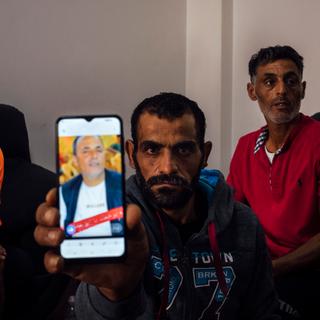
Gazan workers wait in Jericho: 'Here, we die a hundred times a day, when we see what's happening back home'
FeatureMany Gazan workers who lost their Israeli work permits after Hamas's attack on October 7 have taken refuge in the West Bank. For the past month, they have been desperate for news from their families caught up in the bombing.
Fouad Al-Burai was overcome with grief, burst into tears, fell to the ground and screamed in the middle of a crowd of Palestinians who watched helplessly. The man in his early fifties had just learned that almost his entire family died in the bombardment of their home in the Jabaliya district of the northern Gaza Strip, the target of Israeli strikes on an unprecedented scale on Saturday, November 5.
Twenty-four victims, 24 names, were displayed on the telephone that passed from hand to hand. Al-Burai was left with only two children: a son, who miraculously left their house just before the bombing, and a daughter, who had taken refuge in Rafah, in the south of the enclave. All the others – uncles, aunts, cousins, nieces, children and grandchildren – were wiped out by the Israeli bombardments which, for the past month, have been striking Gaza civilians in retaliation for the October 7 attack by Hamas on Israel. According to the local Ministry of Health run by the Islamist movement, at least 10,000 people have been killed, including over 4,100 children.
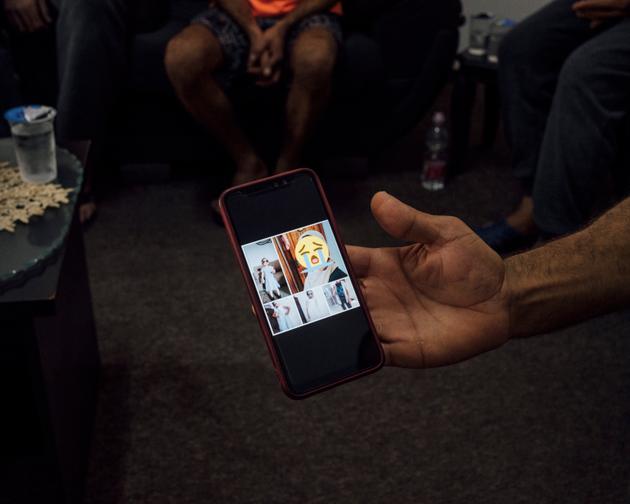
Like Al-Burai, some 850 Gazans who had permits to work in Israel have taken refuge at Al-Nwama, a Palestinian security forces training base located on a small hill on the outskirts of Jericho, in the West Bank. The site has become one of the reception centers for some 5,000 Gazan workers expelled by Israel after the October 7 attacks.
'We're waiting our turn'
The day after the attacks, their work permits were canceled and, like several thousand other workers, most of whom were employed in construction, cleaning services or agriculture, they were removed from Israeli territory. Those who were unable to reach the occupied West Bank were arrested by the Israeli authorities. They were returned to the Gaza Strip at dawn on Friday, November 3. Safe in Jericho, these Gazans live in limbo, their days punctured by telephone alerts about the war being waged at home, just over 100 km away, and affecting their families.
"Our days are spent scrolling through photos of our dead. And if, by some miracle, we haven't lost anyone yet, then we wait our turn," said Nasser Ichwa, sitting in the stands of what is usually the base's training ground.
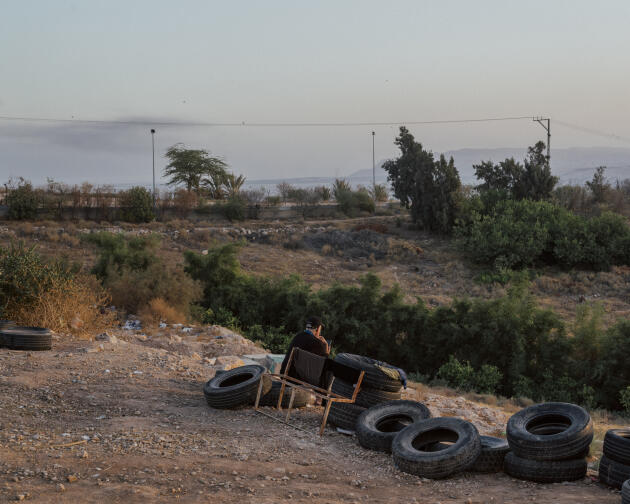
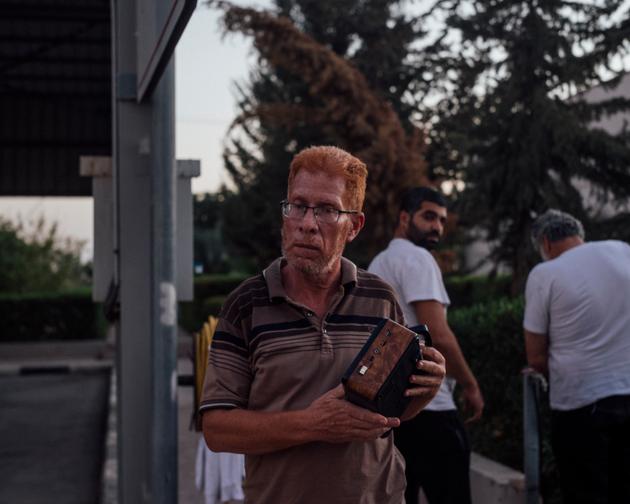
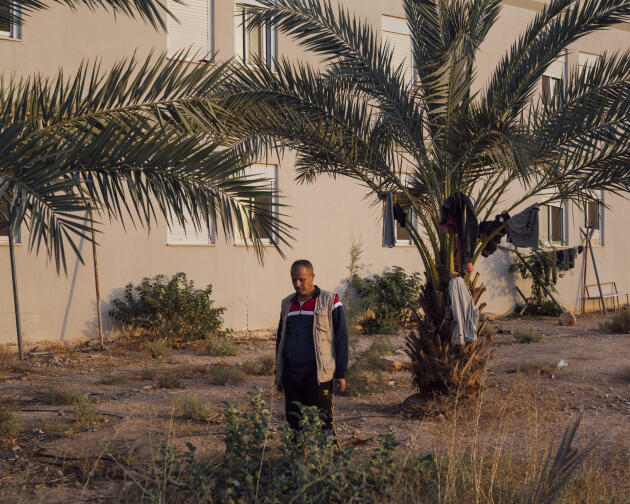
Small groups had set up everywhere, at the foot of the walls of the four spartan barracks that housed the refugees in modest shared rooms, or in the shade of the few date palms that lined the base. Laundry dried on the windows, in the trees, or on the sign indicating the base's firing zone. Mohamad Abou Taleb, the head of security, explained with an embarrassed look, "It's usually forbidden to hang laundry outside like that, but given the circumstances..."
You have 50% of this article left to read. The rest is for subscribers only.
